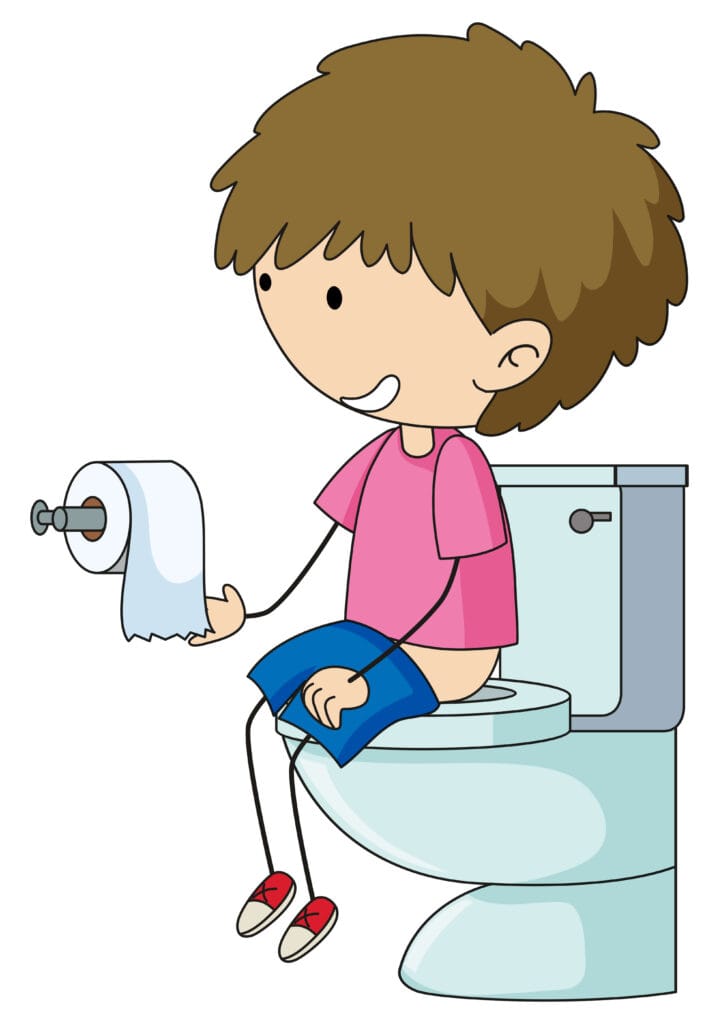Table of Contents
I still remember how easy it was to potty train my first two children. By the time they were two, they showed all the signs of readiness—telling me when they needed to go, showing curiosity about the toilet, and staying dry for hours. So, when my youngest turned two, I thought it would be just as smooth. But I was wrong.
Unlike his older siblings, he had no interest in the potty. He would scream when I tried to sit him down, cry at the sound of flushing, and seemed completely unaware when his diaper was wet. I tried different approaches, from sticker charts to special potty books, but nothing worked. Eventually, I realized he just wasn’t ready, and that was okay.
If you’re struggling with potty training and wondering if your child is ready, here are the signs to look out for.
Understanding Potty Training Readiness
Every child develops at their own pace, and potty training is no different. While some toddlers are ready at 18 months, others may not be until they are 3 or even older. The idea that all children should be trained by a certain age is a myth that puts unnecessary pressure on parents.
Instead of focusing on a specific age, it’s essential to watch for signs that indicate your child is physically, emotionally, and mentally prepared for potty training.
Signs Your Child Is Not Ready for Potty Training
1. Lack of Physical Readiness
Potty training requires a certain level of physical development. If your child struggles with these, they may not be ready:
- Infrequent dry diapers – If they’re still wetting frequently without longer dry periods, their bladder control may not be strong enough.
- Irregular bowel movements – If they don’t have predictable pooping patterns, it can be harder to train.
- Difficulty pulling pants up/down – If they can’t manage basic clothing skills, they may struggle with independent potty use.
2. No Awareness of Bodily Functions
Before training, a child needs to recognize when they are about to go. If your child:
- Doesn’t seem bothered by a wet or dirty diaper
- Shows no reaction to peeing or pooping
- Doesn’t tell you when they’ve gone
…then they may not yet have the body awareness needed for training.
3. Resistance and Fear of the Toilet
If your child refuses to sit on the potty, gets scared of flushing, or runs away when you bring up potty training, forcing them may create more anxiety. Fear often means they’re not emotionally ready yet.
4. No Interest in Independence
Toddlers who are ready for it often show a desire to do things on their own. If your child still prefers you to do everything for them and isn’t curious about the potty, they may need more time.
5. Struggles with Following Instructions

Successful training requires a toddler to understand and follow simple instructions like:
- “Let’s go to the potty.”
- “Pull down your pants.”
- “Sit on the toilet.”
If your toddler ignores or struggles with these basic steps, they may not be developmentally ready.
6. Regression Due to Life Changes
Big changes can disrupt a child’s readiness. If your little one is adjusting to:
- A new sibling
- Starting daycare
- Moving to a new home
…they may regress or resist learning altogether. It’s best to wait until things settle down.
What to Do If Your Child Isn’t Ready
- Be patient – Trying too early can lead to frustration.
- Create a positive environment – Keep it light, fun, and pressure-free.
- Encourage without forcing – Let them explore the potty without pressure.
When to Try Again
If your little one isn’t ready, wait a few weeks or months and try again. Look for signs like:
- Interest in the potty.
- Telling you when they need to go.
- Staying dry for longer periods.
Make it fun with rewards, praise, and a relaxed attitude.
Conclusion
Not every child is ready for potty training at the same time, and that’s okay. Rushing the process can lead to stress and setbacks. Instead, trust your child’s timeline and make the experience as positive as possible.
FAQs
1. How long should I wait before trying potty training again?
It depends on your toddler, but waiting at least a few weeks or until they show signs of readiness is best.
2. What if my child shows some readiness signs but resists using the potty?
Encourage them gently and make it fun, but don’t push. Let them take their time.
3. Can daycare pressure affect potty training success?
Yes, some kids feel stressed when pressured to train before they’re ready. Work with the daycare to go at your child’s pace.
4. How do I encourage my child to recognize their body signals?
Talk about what it feels like to need to pee or poop, and use books and visuals to help them understand.
5. What if my child refuses to sit on the potty at all?
Take a break and reintroduce it slowly. Let them explore it at their own pace without pressure.
